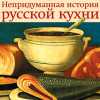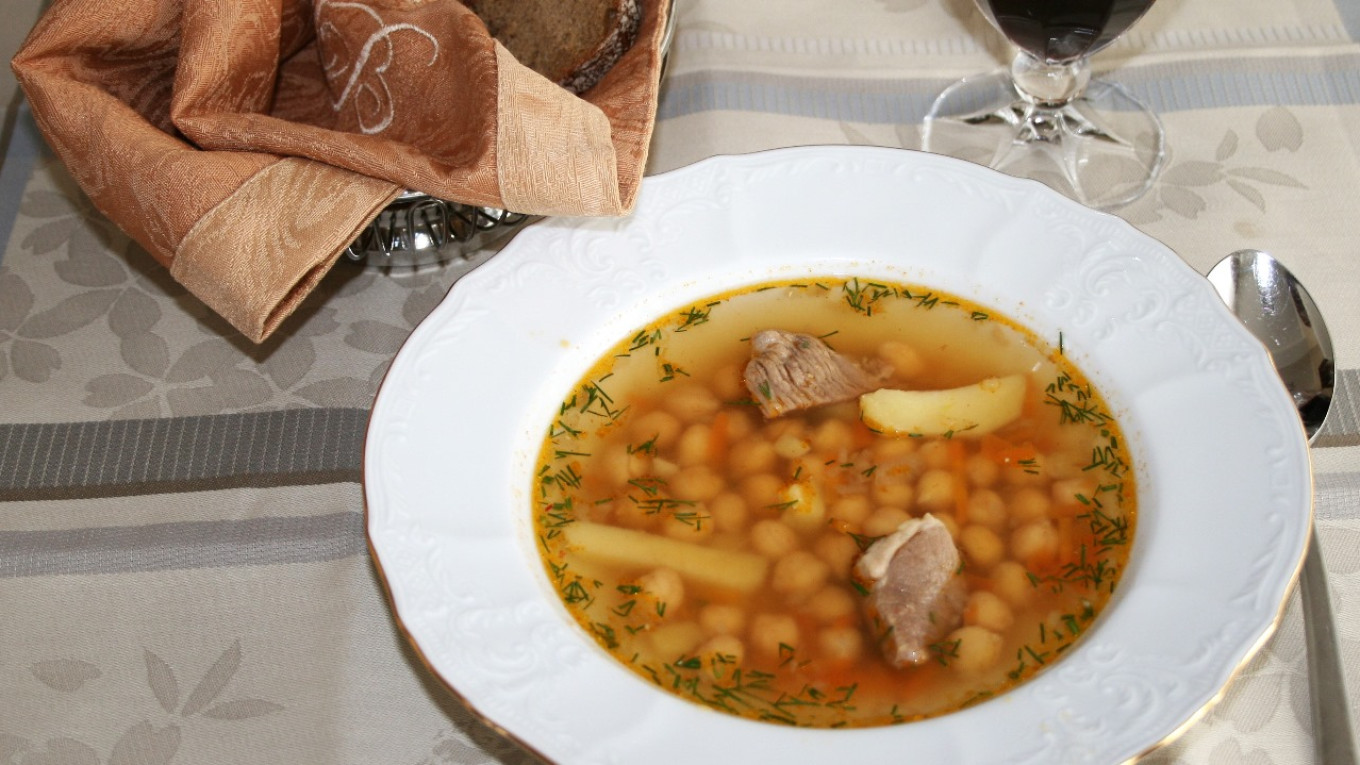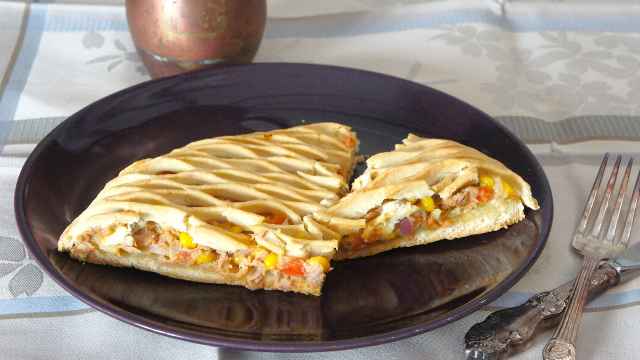The weeks after the New Year holidays right up to Maslenitsa (the start of Lent) were called “wedding weeks” in Russia. During these weeks matchmakers went from house to house. The young men and women who came to an agreement at this time would get married on what was called Red Hill Sunday, the first Sunday after Easter.
No one got married during the Christmas season, which was considered to be the first two weeks after Christmas. This was a time of partying, fortune-telling and all sorts of merrymaking when evil forces were afoot. What if in the confusion of the festivities you married the devil? That was the thinking of our ancestors, who wisely postponed weddings to a quieter time.
When the wedding season began, you needed excellent health to get through it. An old country wedding was a serious trial for the guests. To be brutally honest, it’s the rare one among us who could get through it to the end.
Don’t take our word for it — decide for yourself. The wedding feast begins with three glasses of vodka. Then the drinking and eating continues on until midnight or later. Early morning the next day the guests gather again to drink away their hangovers.
The village of Mstyora is only 120 kilometers from Vladimir. But even in the 19th century life there was frozen in the ancient patriarchal ways. The Russian ethnographer Ivan Golyshev (1838-1896) left fascinating memoirs about the town and its ways in the book “The Godly Village of Mstyora.” The book contains rich descriptions of wedding ceremonies.
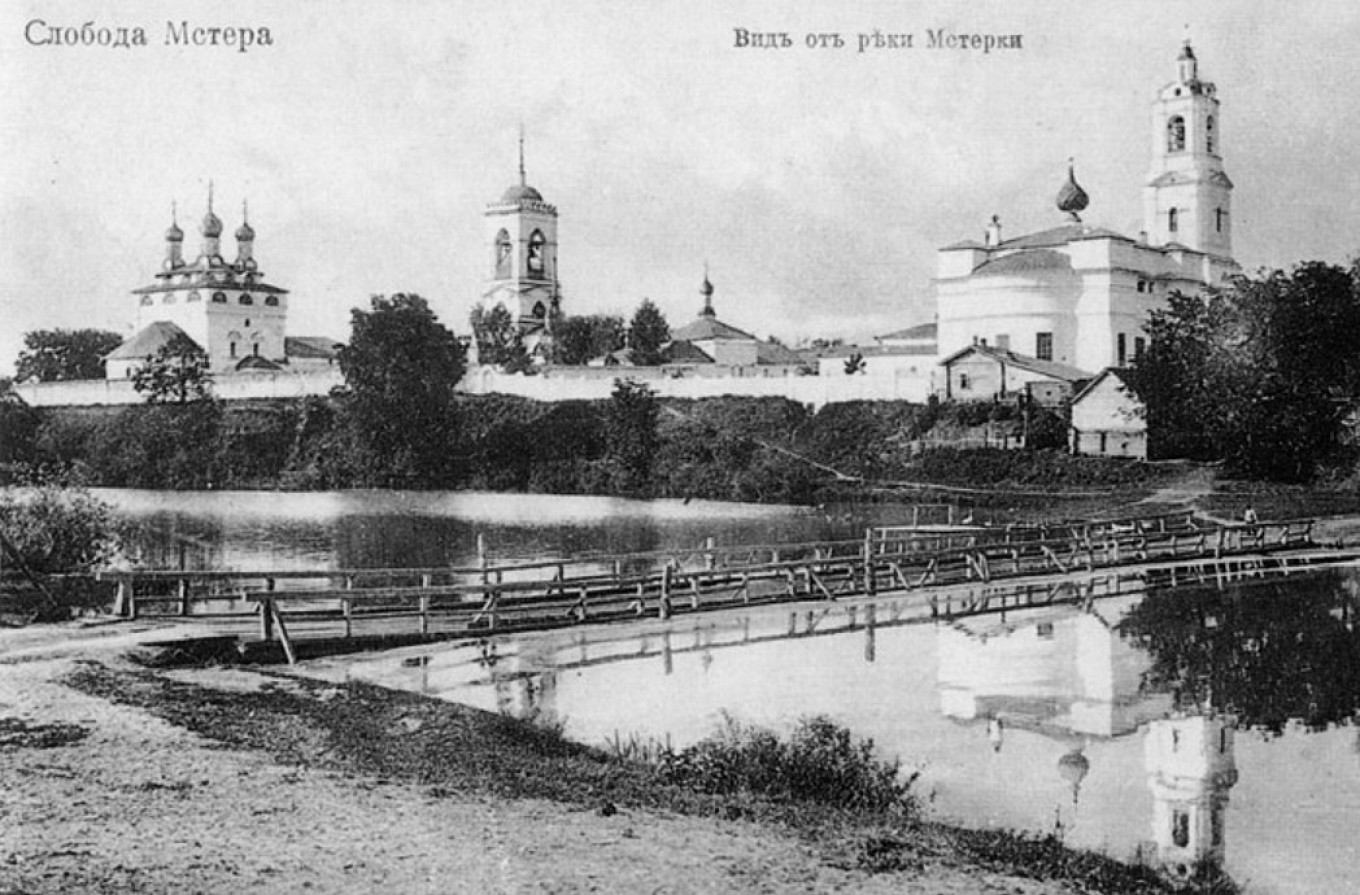
A feast called the “table of pride” is held in the evening in the bridegroom’s house. All the bride’s relatives are invited. They are met at the gate by the father, mother, the young bridegroom and all the groom's relatives. The father of the groom presents a loaf of black bread and bows down to the feet of his son’s mother-in-law and father-in-law.
Then the guests enter the rooms and sit at the tables. The bride’s mother and father and their relatives are given seats of honor. The “table of pride” begins with dinner, but before food is served everyone drinks three glasses of vodka, fruit liquors, red wine, or mead — each person chooses. Then the meal is served. It consists of the following dishes: cold appetizers of ham, head of lamb, aspics; hot soup made with lamb or goose giblets; fried shoulder or breast of lamb, suckling pig and goose; the “pudding” — sweet cakes and gingerbreads. In between each course everyone drinks down at least two glasses of vodka, braga, beer and other alcoholic drinks.
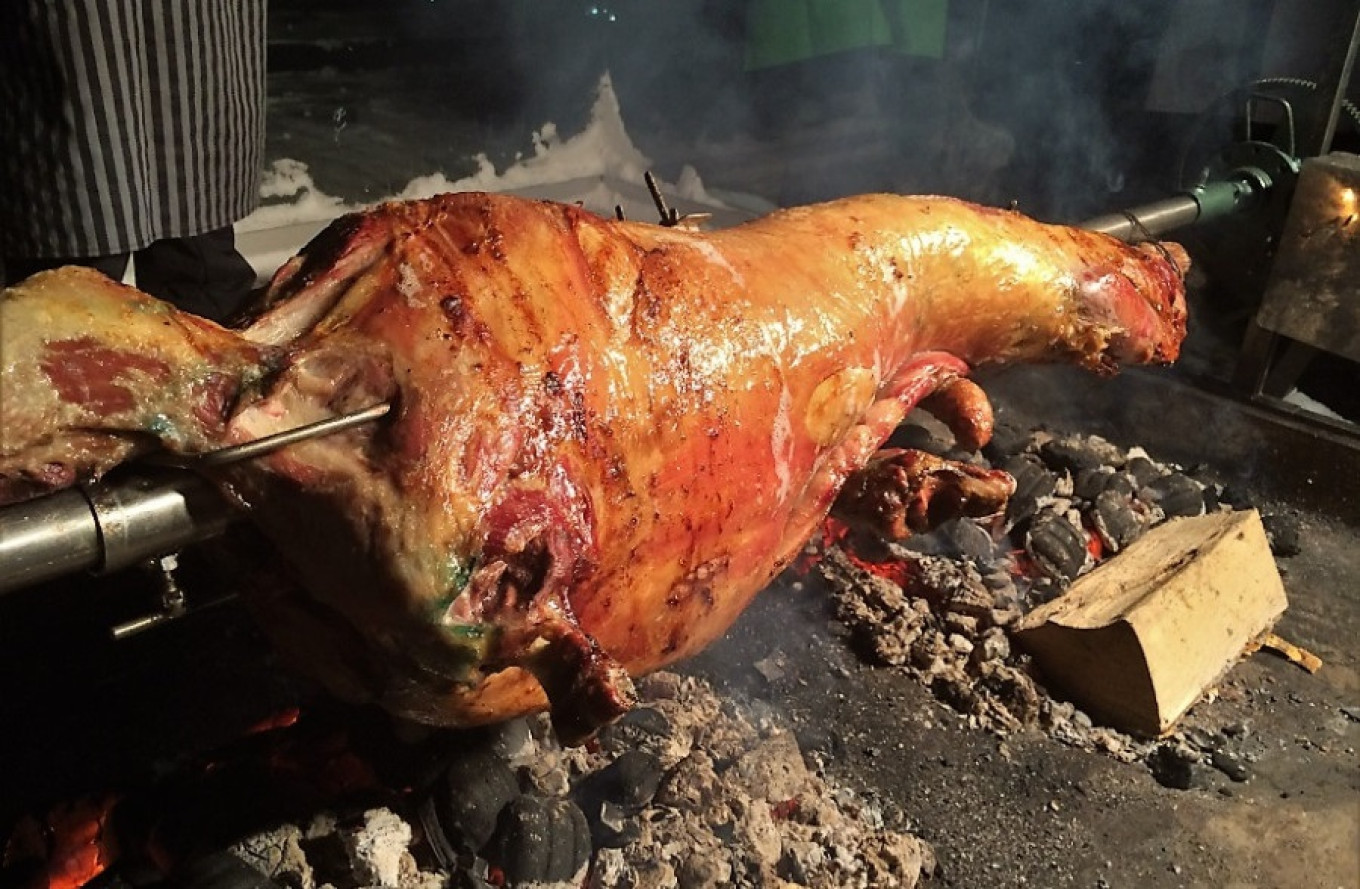
When the lamb breast is served, the bridegroom removes the kidney and cuts it into tiny pieces, which are put on the tip of a fork and offered to each of the guests. When each person accepts the piece of kidney they toss down a drink and make the newlyweds kiss. This ceremony goes on for a very long time, especially if there are many guests — up to 60 people.
When the goose is served, the newlyweds leave the table and change into other clothing. After a pause, all the revelers sit down at the table again. Anyone who can’t keep up and is unable to eat and drink anymore is sent home. The rest continue on well past midnight.
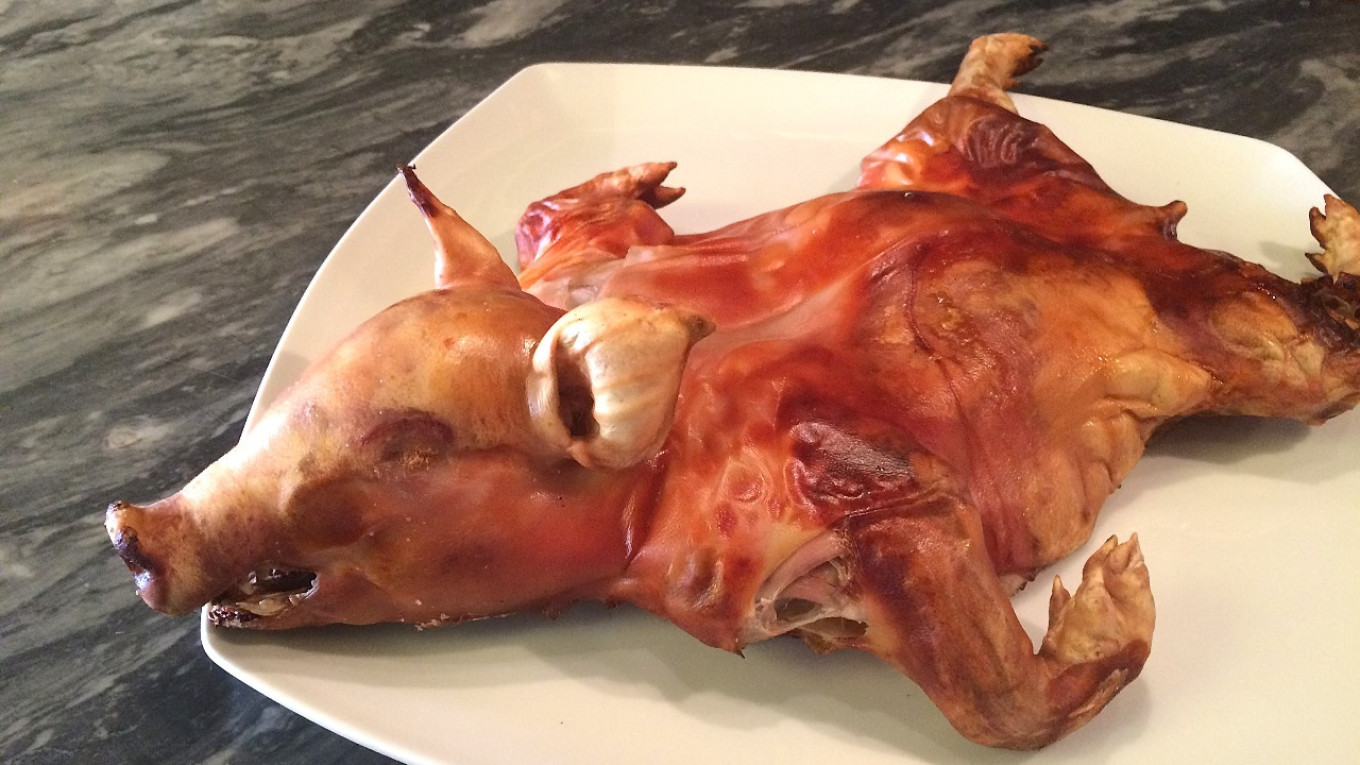
Early the next morning the guests gather to drown their hangovers in more drink, and there is a great deal of drunken shouting, lots of noise, singing and dancing. At noon “breakfast” is prepared. Close friends and relatives of the bride, both men and women, bring breakfast from the bride’s house: roasted breast of lamb, braga and sweet kvass. At breakfast they pour everyone vodka, have something to eat, and then the lamb kidney is distributed to the young couple the way it was at the “table of pride.”
In the evening on this day, the bridegroom goes to his mother-in-law’s house for pancakes. After the pancakes his is served fried eggs that are cut into pieces in a special way passed down from time immemorial. At the end of the meal, the mother-in-law gives the bridegroom a plate of pancakes that he takes to his wife.
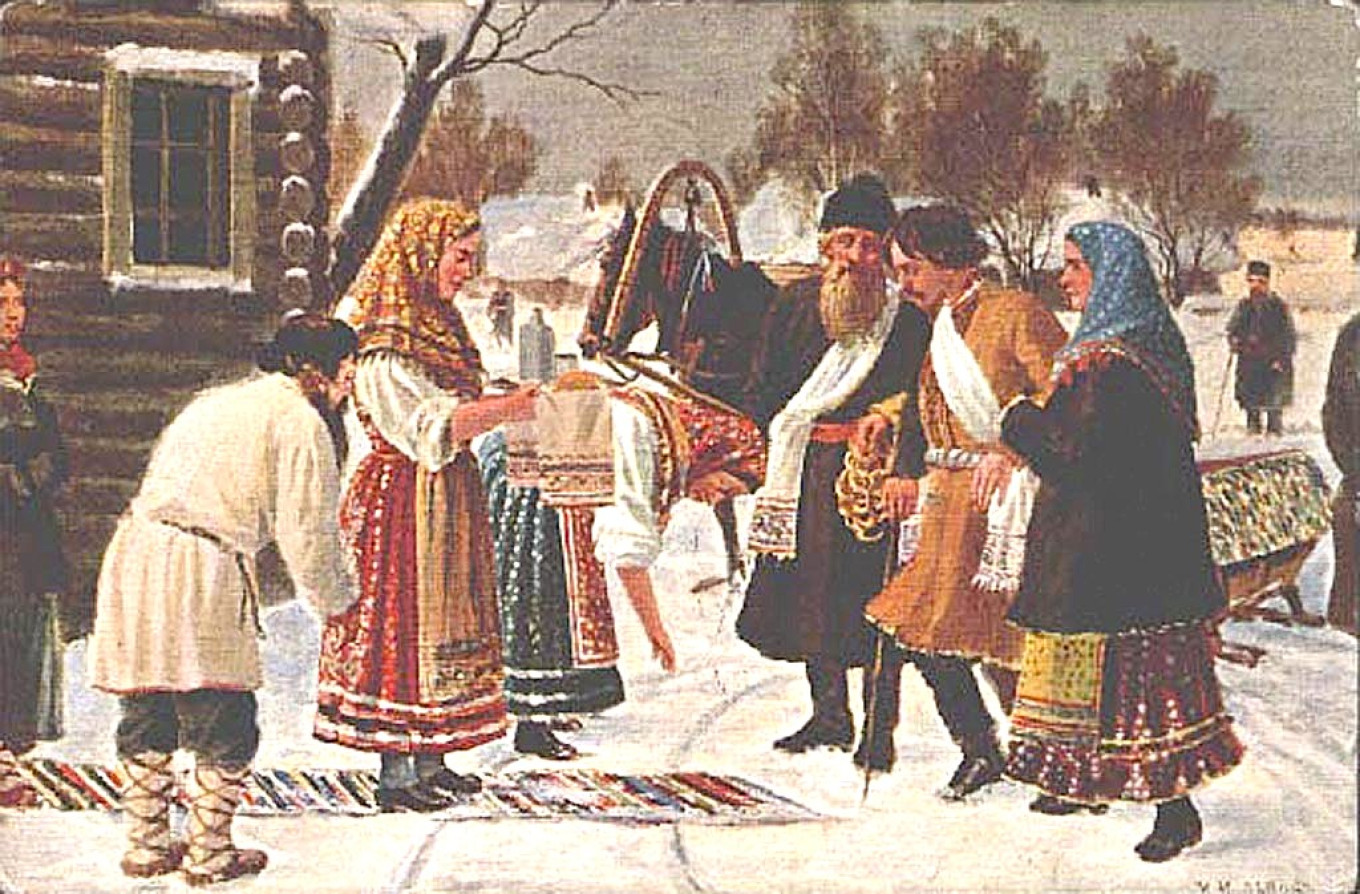
Wedding feasts in cities did not differ much from village weddings. In the description of the wedding ceremony of Gerasim Stepanov, a famous Moscow culinary expert of the mid-19th century, there is champagne, coffee, chocolate, biscuits — and then they finally pour the vodka.
“As soon as the groom and bride are blessed with an icon and take their seats, everyone raises glasses of champagne to drink to their health. This is followed by coffee and hot chocolate, served with sweet and dry biscuits. Then glasses are raised to the health of the newlyweds, first by the groom, the bride and the groom’s close relatives. After that there is dessert, and then glasses are raised by the bride’s family — her father, mother and relatives; at the end tea is served, after that — vodka and trays of appetizers.”
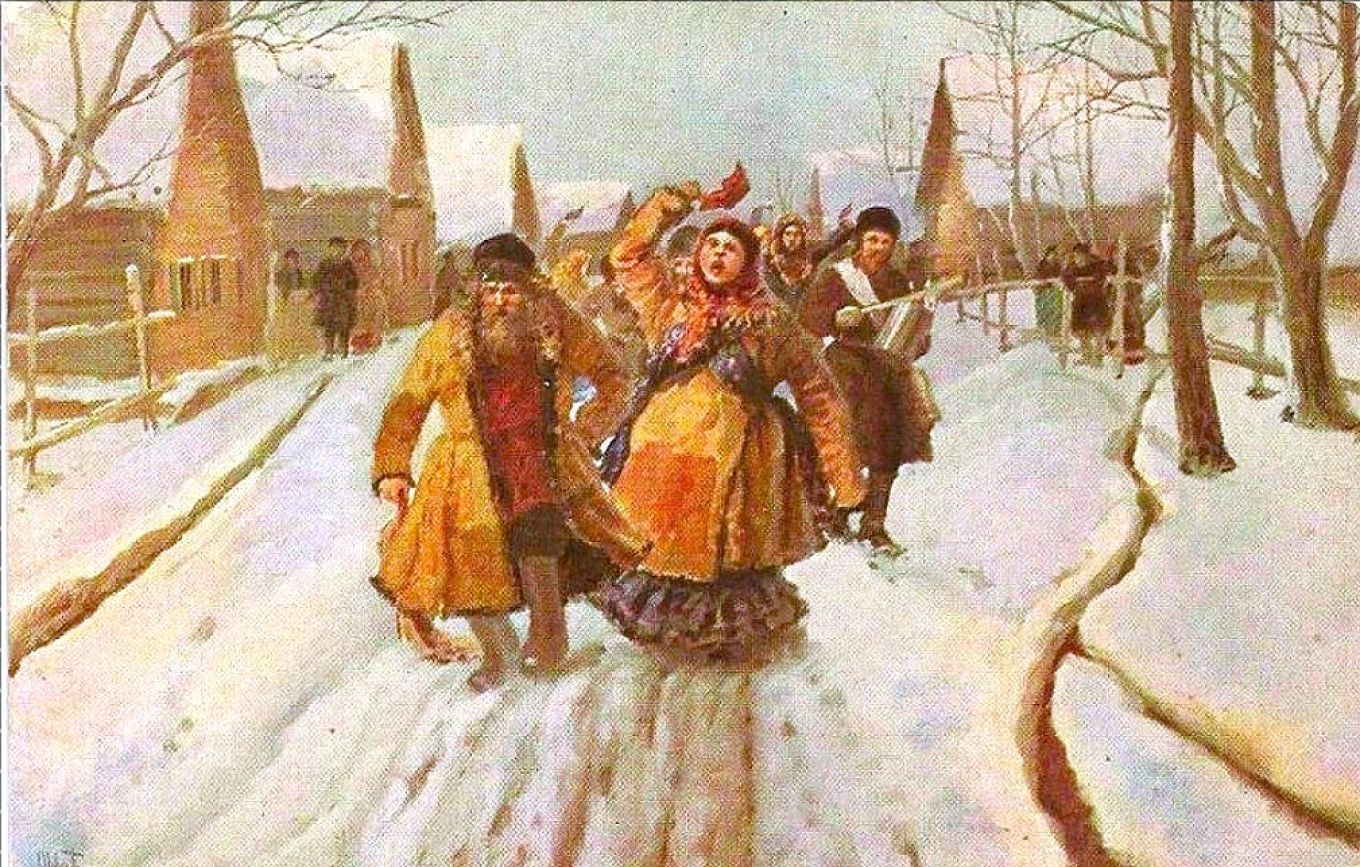
A wedding in Russia was an elaborate ritual. Even seemingly random incidents were carefully planned. For example, here is a funny and sad custom:
If the bride is discovered to be unchaste, the entire ceremony changes. The groom invites the bride's parents to meet with his parents and elders. The father of the groom doesn’t serve vodka — he serves braga in a glass with a hole in the bottom. He plugs the hole with his finger as he brings the glass so that the braga won’t spill out. The bride’s father has to accept the glass of shame whether he wants to or not. But as soon as he takes it, the braga pours out of the hole, and the father just puts the glass to his lips as the offended family laughs and taunts him.
Today it is hard to imagine the number of dishes eaten by wedding guests and the liters of vodka drunk. Our favorite dish in this long menu was the lamb soup, which is very appealing in the damp and cold of January. And if needed, you can serve this soup at the end of a holiday feast to bring everyone back to life.
Lamb and Chickpea Soup
For 5-6 servings
Ingredients:
- 150 g (5 oz) dry chickpeas or 1 can (400 g or 14 oz) canned chickpeas
- 500 g (generous 1 lb) lamb shoulder
- 5 - 2 liters (quarts) of water
- 2 potatoes
- 1 small carrot
- 100 g (3.5 oz) celeriac
- 1 small hot pepper
- 1 clove of garlic
- 2 Tbsp vegetable oil
- a pinch each of cumin, coriander seeds, mustard seeds
- 1 Tbsp paprika
- parsley greens
- salt to taste
Instructions
- If you are using dry chickpeas, the day before you make the soup wash them and let them stand in cold water for 12 hours. Drain before cooking.
- Cut the lamb into small pieces and boil in 1.5-2 liters/quarts of water to make a broth.
- After the broth boils for 30-40 minutes, add the soaked and drained chickpeas, and cook for at least another hour until the chickpeas are soft. Note: If you are using canned chickpeas, they are added later.
- Heat oil in a frying pan and sauté thinly sliced carrots, celery and garlic.
- When the broth is ready, add chopped potatoes. If using canned chickpeas, add them now along with the liquid in the can. Cook for about ten minutes. Then add the sauteed vegetables.
- Grind cumin, coriander and mustard seeds. Add the ground spices and paprika to the soup. Mix well and cook for another 3-4 minutes.
- Then add chopped parsley leaves and remove from the stove.
- Let the soup rest for 10-15 minutes before serving.
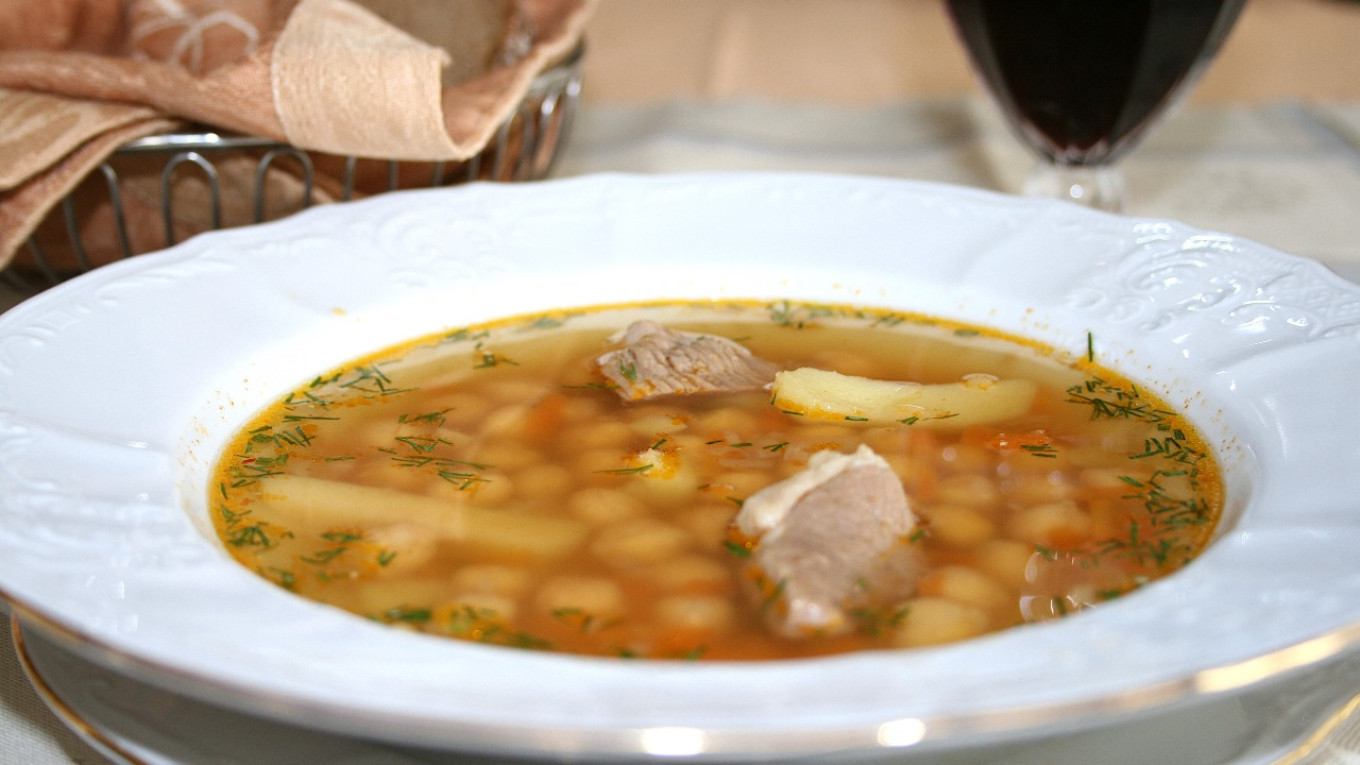
A Message from The Moscow Times:
Dear readers,
We are facing unprecedented challenges. Russia's Prosecutor General's Office has designated The Moscow Times as an "undesirable" organization, criminalizing our work and putting our staff at risk of prosecution. This follows our earlier unjust labeling as a "foreign agent."
These actions are direct attempts to silence independent journalism in Russia. The authorities claim our work "discredits the decisions of the Russian leadership." We see things differently: we strive to provide accurate, unbiased reporting on Russia.
We, the journalists of The Moscow Times, refuse to be silenced. But to continue our work, we need your help.
Your support, no matter how small, makes a world of difference. If you can, please support us monthly starting from just $2. It's quick to set up, and every contribution makes a significant impact.
By supporting The Moscow Times, you're defending open, independent journalism in the face of repression. Thank you for standing with us.
Remind me later.

